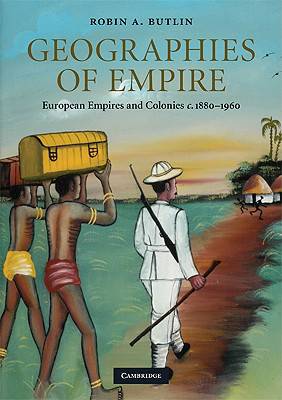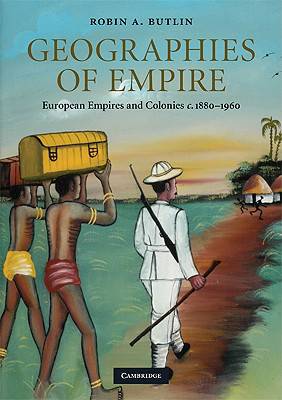
- Afhalen na 1 uur in een winkel met voorraad
- Gratis thuislevering in België vanaf € 30
- Ruim aanbod met 7 miljoen producten
- Afhalen na 1 uur in een winkel met voorraad
- Gratis thuislevering in België vanaf € 30
- Ruim aanbod met 7 miljoen producten
Zoeken
Omschrijving
How did the major European imperial powers and indigenous populations experience imperialism and colonisation in the period 1880-1960? In this richly-illustrated comparative account, Robin Butlin provides a comprehensive overview of the experiences of individual European imperial powers - British, French, Dutch, Spanish, Portuguese, Belgian, German and Italian - and the reactions of indigenous peoples. He explores the complex processes and discourses of colonialism, conquest and resistance from the height of empire through to decolonisation and sets these within the dynamics of the globalisation of political and economic power systems. He sheds new light on variations in the timing, nature and locations of European colonisations and on key themes such as exploration and geographical knowledge; maps and mapping; demographics; land seizure and environmental modification; transport and communications; and resistance and independence movements. In so doing, he makes a major contribution to our understanding of colonisation and the end of empire.
Specificaties
Betrokkenen
- Auteur(s):
- Uitgeverij:
Inhoud
- Aantal bladzijden:
- 692
- Taal:
- Engels
- Reeks:
- Reeksnummer:
- nr. 42
Eigenschappen
- Productcode (EAN):
- 9780521740555
- Verschijningsdatum:
- 31/07/2009
- Uitvoering:
- Paperback
- Formaat:
- Trade paperback (VS)
- Afmetingen:
- 173 mm x 246 mm
- Gewicht:
- 1360 g

Alleen bij Standaard Boekhandel
+ 127 punten op je klantenkaart van Standaard Boekhandel
Beoordelingen
We publiceren alleen reviews die voldoen aan de voorwaarden voor reviews. Bekijk onze voorwaarden voor reviews.











